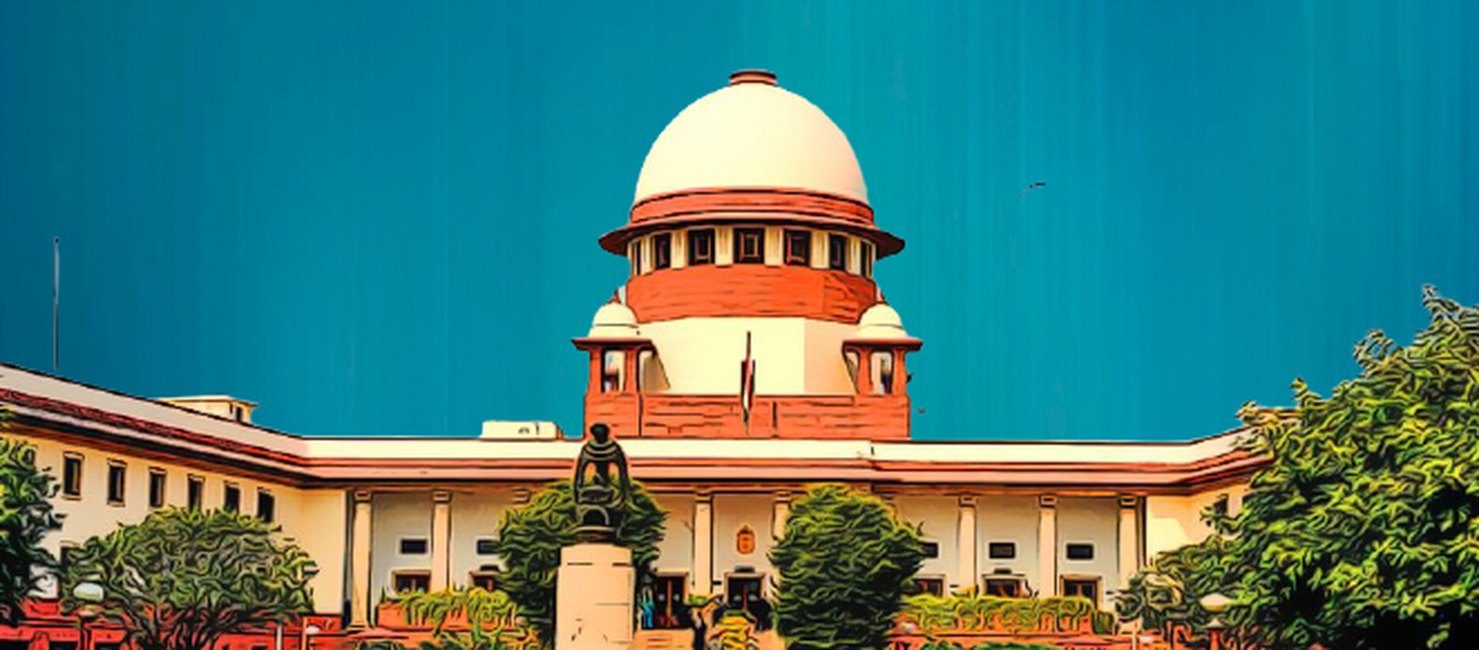In CRIMINAL APPEAL NO. 3628 OF 2023-SC- Allahabad HC has clearly fallen in error in not invoking powers u/s 482, CrPC: Top Court quashes criminal breach of trust & extortion charges against husband in matrimonial dispute
Justices C.T. Ravikumar & Sanjay Kumar [28-11-2023]

Read Order: ABHISHEK SAXENA v. THE STATE OF UTTAR PRADESH & ANR
Tulip Kanth
New Delhi, January 5, 2024: The Supreme Court has observed that intentionally putting a person in fear of injury to himself or another and dishonestly inducing the person so put to deliver to any person any property or valuable security, are the two main ingredients to attract the offence under Section 384, IPC.
An FIR , in this case, was registered against the appellant, his parents and relatives alleging commission of offences under Sections 323, 363, 384, and 406 of the Indian Penal Code. Thereafter the accused, including the appellant, filed an application under Section 482 CrPC seeking quashment of the FIR and the consequently filed chargesheet and the summoning order. As per the impugned order, the High Court declined to exercise the power under Section 482 CrPC and consequently dismissed the petition qua the appellant.
The Division Bench of Justice C.T. Ravikumar & Justice Sanjay Kumar , at the outset, observed, “Having gone through the chargesheet, and the other material on record, we could not find necessary ingredients to attract the offences under Sections 323, 384 and 406 of the I.P.C. qua the appellant.”
It was noticed by the Bench that as far as the allegation of commission of offence under Section 323 was concerned, besides the bald statement ‘when I asked these people about my daughter, they beat up me’ no material whatsoever to support the allegation causation of hurt was available on record much less voluntary causation of hurt. About the demand of a sum of Rs 20 lakh from her father after about 15 days from 12.06.2016 from the house of second respondent’s father in Bareilly, the second respondent (the complainant) in her statement given to the Investigating Officer, submitted that she did not get registered an FIR or file any complaint in Bareilly.
The unrefuted position of facts revealed from the materials on record was that the appellant herein had already filed a petition for dissolution of his marriage with the second respondent-complainant and also an Application Sections 7, 10 and 17 of the Guardians & Wards Act, 1890 for declaring him as the guardian of the person of the minor daughter by name ‘Anwesha Saxena’, before the Family Court. FIR was registered against the appellant, his parents and relatives on 04.09.2016 on the complaint of the second respondent only on 04.09.2016.
It was noted that in this FIR, date of incident was shown as 12.06.2016 at 03.00 AM and date of information was shown as on 04.09.2016 at 09.30 AM and the delay in investigation is recorded as the delay in submitting information by the complainant i.e., the second respondent herein.
Noting that there was no material to show for allegation of hurt, the Bench said, “As the High Court did not endeavour to consider whether the chargesheet submitted showed prima facie case under Sections 323, 384 and 406, IPC for voluntarily causing hurt, for extortion and for criminal breach of trust, we think it inevitable to undertake such a consideration as in the facts and circumstances while called upon to exercise the power under Section 482, CrPC the High Court was legally bound to see if allegations/accusations constitute any offence or not.”
In the recorded statement of the second respondent-complainant or in the counter affidavit filed by the first respondent there was not even a whisper that after the incident she went to a doctor or underwent any kind of treatment. It was also seen that the FIR got registered only after the filing of petition by the appellant before the Family Court. Above all, the Bench stated that the basic ingredients to constitute an offence under Section 323, IPC was lacking in the chargesheet.
The Bench further clarified that following are the essential ingredients to constitute an offence under Section 406, IPC:
(i) Entrusting any person with property or with any dominion over property;
(ii) the person entrusted (a) dishonestly misappropriating or converting to his own use that property; or (b) dishonestly using or disposing of that property or willfully suffering any other person so to do in violation –
- of any direction of law prescribing the mode in which such trust is to be discharge, or;
- (ii) of any legal contract made touching the discharge of such trust.
In the absence of basic ingredient of entrustment of property and dishonest usage or disposal of any such property to satisfy the offence punishable under Section 406, IPC in the present case, the charge of commission of the offence thereunder also cannot be attracted.
Thus, the Bench opined that no useful purpose was likely to be served by allowing criminal prosecution against the appellant to continue based on the aforesaid chargesheet as ingredients of all the aforementioned offences were wanting in this case.
“We have no hesitation to hold that the High Court has clearly fallen in error in not invoking the powers under Section 482, CrPC to quash the proceedings qua the appellant”, the Bench held while allowing the appeal.
Sign up for our weekly newsletter to stay up to date on our product, events featured blog, special offer and all of the exciting things that take place here at Legitquest.




Add a Comment